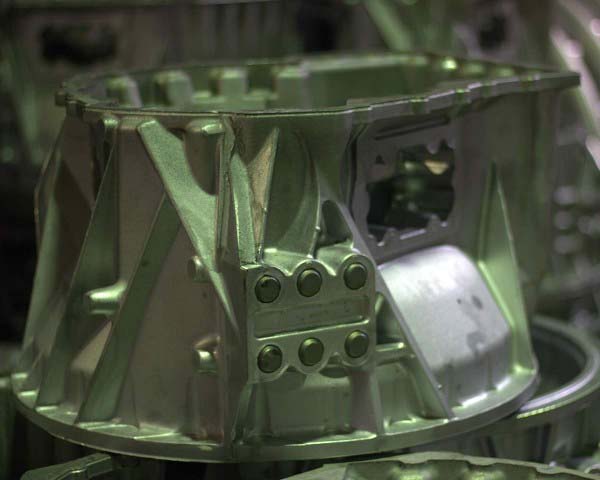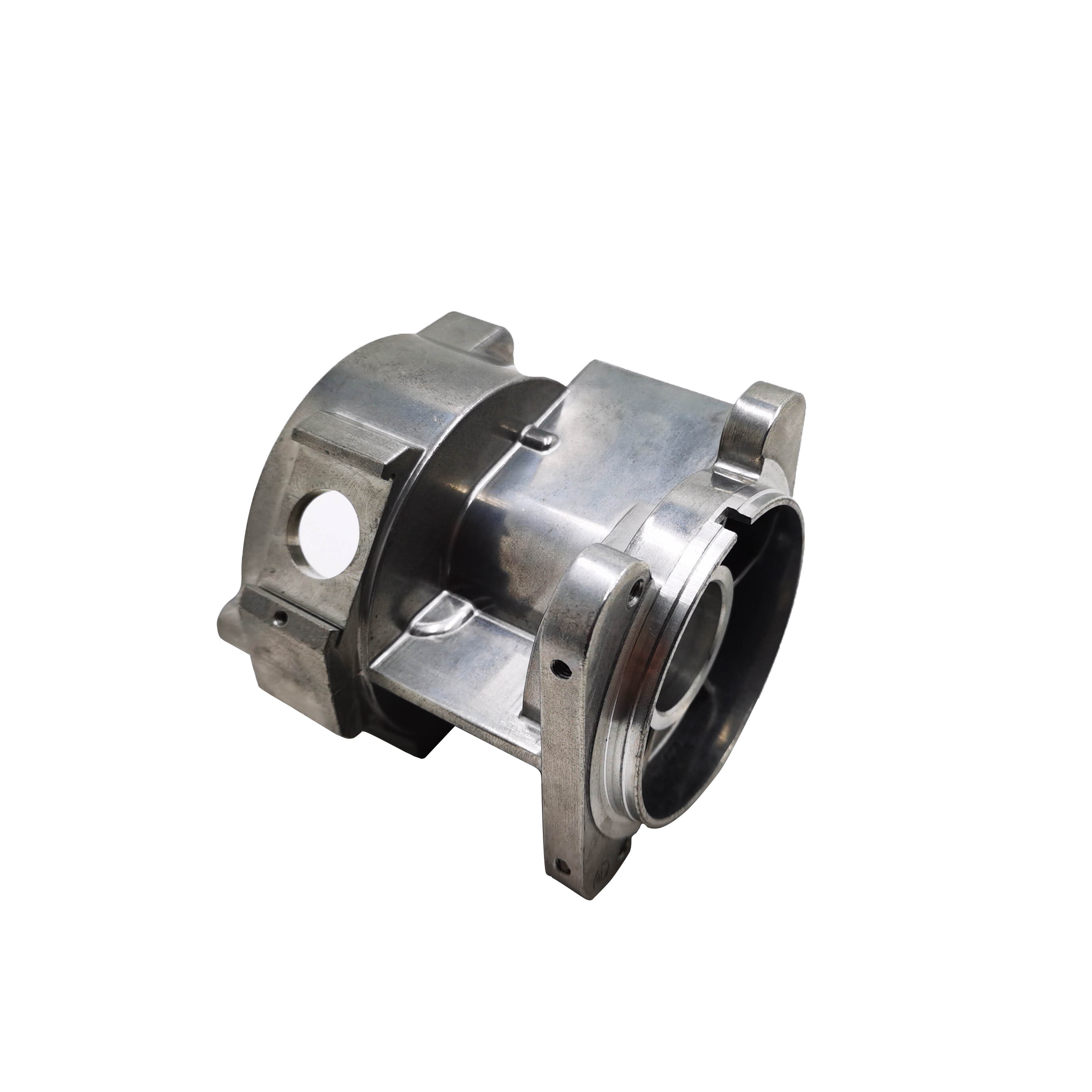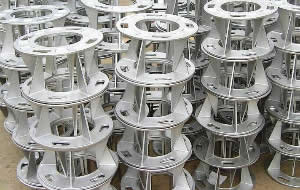The impact of Precision aluminum casting in creating modern machinery
A Comprehensive Guide to Picking the Right Foundry Providers for Your Task Needs
Selecting the ideal foundry services is essential for the success of any task. Each spreading approach-- sand spreading, financial investment spreading, and die casting-- has special advantages. Comprehending these options aids in making educated choices. Product choice, production abilities, and quality control are crucial elements to consider. Additionally, reviewing costs can influence lasting viability. aluminum casting. What variables should guide this decision-making procedure?
Recognizing the Different Kinds Of Foundry Solutions
While the world of foundry services may appear facility initially glance, understanding the numerous types can greatly streamline the manufacturing process. Foundries normally concentrate on casting metals, and the main types consist of sand casting, investment spreading, die spreading, and centrifugal spreading.
Sand spreading includes developing molds from sand and is excellent for huge elements or low-volume manufacturing. Financial investment casting, on the various other hand, provides high accuracy for intricate layouts, making it ideal for aerospace or clinical applications. Pass away spreading, identified by forcing liquified steel into mold and mildews under high stress, is effective for automation of smaller parts.
Centrifugal casting utilizes rotational force to distribute molten steel, producing strong, cylindrical parts. Each service type has unique benefits and is selected based upon certain job requirements. Comprehending these differences allows suppliers to choose the most appropriate factory solution, eventually enhancing performance and product high quality.
Trick Aspects to Think About in Material Choice
Picking the proper product for foundry services is an important action that affects the overall success of a task. Key aspects in material option consist of mechanical buildings, thermal resistance, and corrosion resistance - Aluminum Foundry. Recognizing the intended application and its demands is crucial; materials must withstand functional stresses while preserving stability over time
One more crucial factor to consider is the material's compatibility with the selected production procedure, as some materials are much better fit for specific strategies. Cost-effectiveness additionally plays a considerable duty, as budget plan restrictions can limit choices.

Finally, accessibility and lead times of products can affect job timelines, making it needed for task supervisors to assess these aspects thoroughly. By very carefully reviewing these aspects, one can assure an extra effective and successful shop solution experience.
Assessing Manufacturing Abilities and Technologies
Exactly how properly a factory can meet project requirements rests on its manufacturing capabilities and modern technologies. A complete analysis of these components is vital for project success. Production capacities include the shop's ability to deal with varying project timelines, sizes, and complexities. Understanding the foundry's equipment and equipment is necessary, as contemporary technologies such as computer system mathematical control (CNC) machining and progressed mold-making techniques can considerably improve accuracy and performance.
Furthermore, the foundry's use of ingenious products and processes, such as 3D printing or lost foam casting, can use advantages regarding design versatility and cost-effectiveness. It is likewise crucial to review the check here shop's capability to range production, making sure that they can fit future increases popular without compromising quality. By thoroughly analyzing these variables, task supervisors can make enlightened choices regarding which foundry is ideal suited to meet their particular production needs and technical expectations.
Significance of Quality Assurance in Metal Spreading
Quality assurance stands as an essential column in the metal spreading industry, making certain that every component fulfills stringent requirements and requirements. This procedure entails methodical monitoring and analysis of each phase of production, from initial style to last evaluation. Executing rigorous quality assurance methods enhances the integrity and efficiency of actors components, minimizing the chance of defects that can endanger structural integrity.
Efficient high quality guarantee promotes trust fund between factories and clients, as adherence to high requirements indicates commitment to excellence. It also minimizes costly rework and delays, streamlining production procedures. By identifying possible problems early, top quality assurance not only safeguards completion product but likewise adds to continuous renovation within the foundry's procedures. Ultimately, prioritizing quality control in steel casting is essential for achieving customer contentment and maintaining an one-upmanship in the industry.
Evaluating Cost-Effectiveness and Budget Plan Restraints
While going across the complexities of shop solutions, reviewing cost-effectiveness and spending plan constraints becomes an essential aspect for businesses. Comprehending the complete expense of ownership involves greater than simply the initial rate; it requires an analysis of lasting costs, consisting of products, labor, and functional efficiencies. Business must request thorough quotes that describe all potential costs, enabling a more clear contrast in between different factories.
Furthermore, businesses need to evaluate their details task demands versus budget constraints. This consists of reviewing the compromises between reduced costs and prospective impacts on quality, preparations, and integrity. It is crucial to take into consideration whether the picked foundry uses scalable solutions that can fit future demands without significant monetary stress. By meticulously balancing expense factors with task goals, business can make educated choices that enhance both budget and efficiency, making certain effective results for their shop projects.
Frequently Asked Questions
How Can I Make Sure Prompt Shipment of My Factory Task?

What Accreditations Should a Foundry Service Company Have?
A credible foundry company ought to possess certifications such as ISO 9001 for top quality administration, ISO 14001 for ecological administration, and industry-specific qualifications that demonstrate compliance with safety and performance standards appropriate to the casting process.
Can I Visit the Factory Before Making a Decision?
Yes, going to the shop prior to choosing is often suggested. This enables potential customers to evaluate the center, meet the team, and guarantee that the services line up with their certain job requirements and criteria.
What Is the Typical Preparation for Customized Castings?
The regular lead time for custom-made spreadings More Info ranges from 4 to twelve weeks, relying on the intricacy of the layout, material requirements, and the foundry's ability. Prompt interaction can usually quicken the procedure.
Exactly How Do Shops Manage Layout Modifications Throughout Manufacturing?
Shops commonly accommodate style modifications during production by applying versatile procedures. They evaluate the effect on costs and timelines, connect with customers, and change process to assure high quality while reducing interruptions to the manufacturing timetable.
